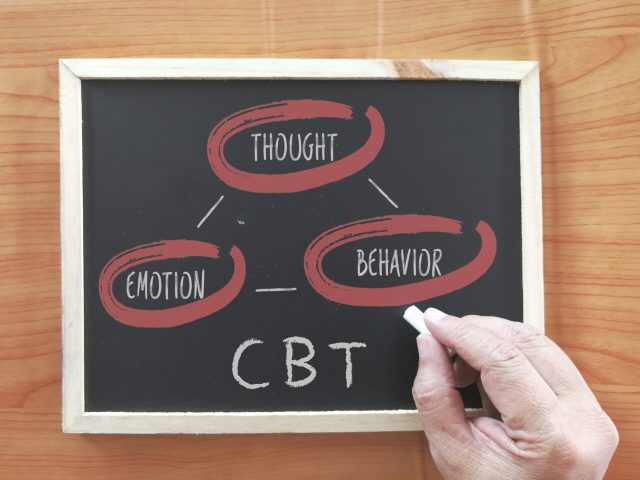Course Summary
Practice Level: Intermediate
This course is a review of the current state of the science of CBT in the treatment of posttraumatic stress disorder (PTSD) in military and veteran populations. Beginning with a discussion on military culture, the course is an overview and illustration of how to treat PTSD in veterans and military service members in a manner that is consistent with the Clinical Practice Guidelines (CPG) of the Department of Defense and Veterans Health Association. The main focus of the course is the two CPG preferred treatment protocols for treating PTSD: prolonged exposure and cognitive processing therapy. The course covers the underlying principles of these protocols, which are further illustrated with case examples and dialogues.
Course Format
This course contains downloadable online lessons (PDF) and a practice test. When you’re ready, purchase the course by clicking the “Add To Cart” or “Enroll” button. This will let you take the test, complete the course evaluation and receive your certificate for CE credits.
Learning Objectives
- Identify critical elements of military culture.
- Explain the theoretical underpinnings of CBT for PTSD.
- Describe evidence-based approaches to treating PTSD.
- Explain the application of technology aides in treating PTSD.
- Identify trauma-related stuck point cognitions in clients.
- Describe how to conduct exposure to trauma memories.
- Recognize moral injury in military populations.
Course Syllabus
Introduction
Military Culture
- Terms and Conditions
- Values
- Military Life and Seeking Care
PTSD in Military and Veteran Populations
- VA/DoD Clinical Practice Guidelines for Treating PTSD
Cognitive Behavior Therapy for PTSD Overview
- Cognitive Processing Therapy
- Prolonged Exposure
Cultural Considerations
Treating Moral Injury in Military Populations
Summary
References
Author
Scott H. Waltman, PsyD, ABPP
Scott H. Waltman, PsyD, ABPP, is a clinician, international trainer, and practice-based researcher. His interests include evidence-based psychotherapy practice, training, and implementation in systems that provide care to underserved populations. He is certified as a qualified Cognitive Therapist and Trainer/Consultant by the Academy of Cognitive & Behavioral Therapies. He also is board certified in Behavioral and Cognitive Psychology from the American Board of Professional Psychology. He is a board member for the International Association of Cognitive Psychotherapy. More recently, Dr. Waltman, worked as a CBT trainer for one of Dr. Aaron Beck’s CBT implementation teams in the Philadelphia public mental health system. He is the first author of the book Socratic Questioning for Therapists and Counselors: Learn How to Think and Intervene like a Cognitive Behavior Therapist.
Accreditation Approval Statements
CE4Less.com, provider #1115, is approved as an ACE provider to offer social work continuing education by the Association of Social Work Boards (ASWB) Approved Continuing Education (ACE) program. Regulatory boards are the final authority on courses accepted for continuing education credit. ACE provider approval period: 08/08/21-08/08/24.
Social workers completing this course receive 4 clinical continuing education credits.
Courses have been approved by CE4Less.com, as a NAADAC Approved Education Provider, for educational credits. NAADAC Provider #91345 CE4Less.com is responsible for all aspects of the programming.
We are committed to providing our learners with unbiased information. CE4Less never accepts commercial support and our authors have no significant financial or other conflicts of interest pertaining to the material.

